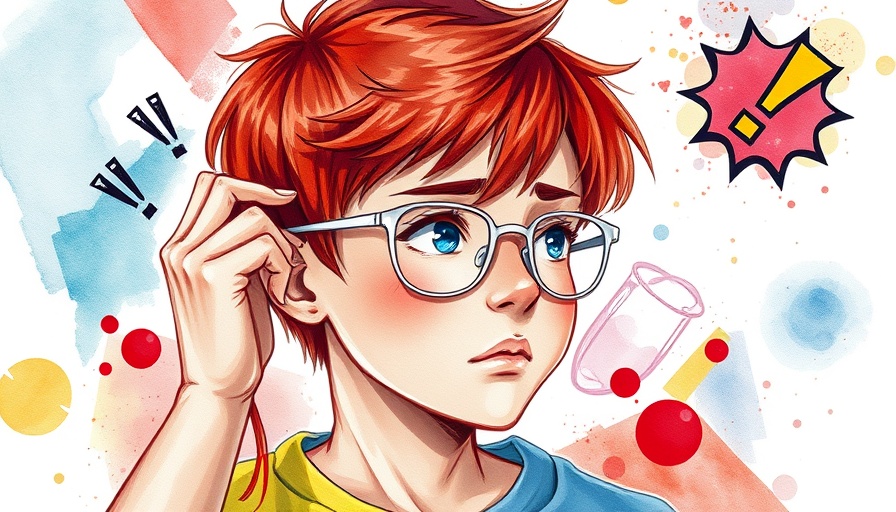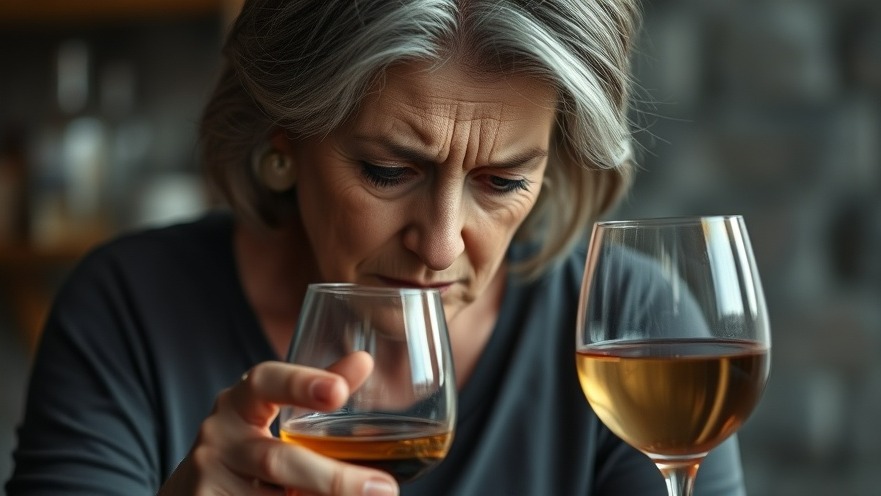
Finding Freedom in the Shadows: Trichotillomania's Hidden Struggles
Trichotillomania, often marked by secrecy and shame, is more prevalent than many realize. With estimated rates around 1-4% in the U.S. alone, it can feel isolating for those who struggle with this hair-pulling condition. For digital nomads, constantly moving and exploring, this condition can challenge the already tough mental landscape shaped by travel anxiety and social pressures.
A Journey of Self-Acceptance
Acceptance is often the first step on the path to recovery. As Laura shared in her story, the journey of learning to love oneself is not straightforward. Trichotillomania started for Laura in her early teens when she discovered she could soothe her stress by pulling her hair. This habit provided a temporary escape, but it often left her feeling more anxious and embarrassed. The struggle for acceptance is amplified for those who travel frequently, where the fear of judgment in new spaces can heighten anxiety.
Learning to Speak Up
For many, speaking about mental health issues like trichotillomania can be daunting. Laura eventually felt safe enough to disclose her struggles to a therapist, marking a pivotal moment in her journey toward healing. Digital nomads can often find that talking about mental health becomes challenging while on the road. However, establishing a support network, whether it’s through online communities or local meetups, can provide crucial emotional support. Starting a conversation, even via social media, can help break down the walls that often accompany such personal battles.
Strategies for Managing Trichotillomania While Traveling
Travelers juggling trichotillomania might benefit from various coping strategies that allow them to maintain self-control wherever they go. Journaling can provide an outlet for emotions, while mindfulness techniques can help ground individuals in high-stress situations. Additionally, engaging in self-care rituals can promote calmness. Seekers of freedom in their travels can incorporate alternative therapies like meditation or yoga that not only enhance travel experiences but also aid in managing repetitive habits.
Community and Connection: Finding Support in Solitude
While the feeling of isolation can be all-consuming, it’s essential to remember that support is just a click away. Online forums and digital communities have become vital resources for individuals dealing with similar challenges. Whether facing a travel itch that fuels anxiety or struggling with self-acceptance, connecting with others can foster a sense of belonging. Digital nomads should leverage online resources to seek out forums dedicated to mental health discussions, which can serve as a powerful reminder that they are not alone.
Empowerment Through Storytelling
Sharing personal narratives can empower not only the storyteller but also those who hear them. Laura’s journey outlines the importance of transparency. By revealing her struggles and triumphs, she not only helps herself but also offers encouragement to others battling similar demons. Traveling opens the door for exchanges of stories, where diverse voices can bring awareness to conditions like trichotillomania, helping others feel validated and understood. The act of storytelling has even been shown to improve mental well-being, making it a true double win while traveling.
A Call for Understanding
As we navigate the complexities of mental health in a world of constant movement, it’s crucial to cultivate a culture of understanding and compassion. Awareness about conditions like trichotillomania can not only destigmatize the experiences of many but encourage more open conversations about personal struggles. The story of triumph over hair pulling is a testament that acceptance is attainable, and a call to action for others to open dialogue with empathy.
The journey toward acceptance, healing, and understanding is ongoing. Whether you struggle personally with trichotillomania, know someone who does, or simply wish to learn more about the dynamics of mental health, seek direction within and around you. By embracing shared human experiences, we can foster environments that nurture growth and empathy.
If you find yourself resonating with these experiences, seek support or engage in discussions—your voice matters, and your journey is important.
 Add Row
Add Row  Add
Add 




Write A Comment